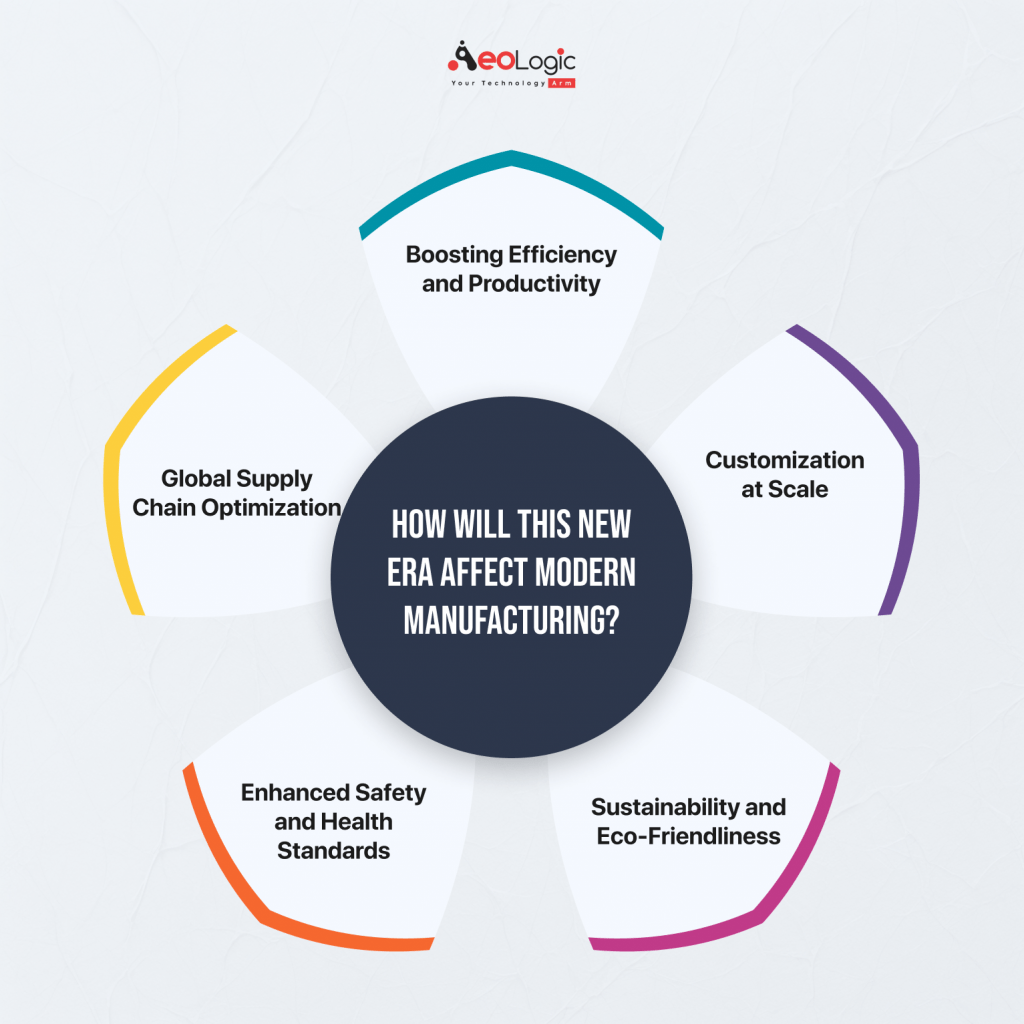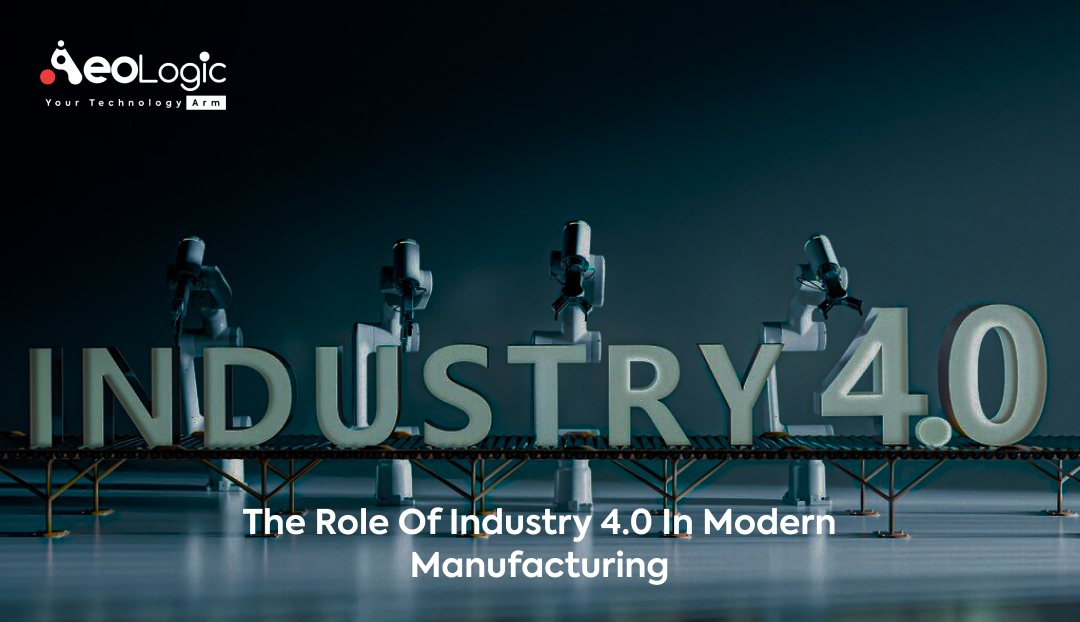Do you ever wonder how our ordinary commodities are produced? Manufacturing is vital for everything you drive to the phone in you hands. However, it’s not your grandfather-style manufacture, welcome to the modern industry 4.0 in manufacturing. This paper will investigate how industry 4.0 is transforming production processes where manufacturing becomes much cleverer than ever before and is very inventive.
What is Industry 4.0?
The term Industry 4.0 refers to the fourth industrial revolution. It is the marriage of improvements in AI, robotics, IoT as well as other digital advances. The industrial revolution is more than simply automation, rather machines that are linked to smart systems and used intelligently by manufacturing data to make informed decisions.
The Pillars of Industry 4.0
Smart Automation: Humans working alongside robots and AI systems.
Data & Analytics: Large volumes of data for use in the decision process.
Internet of Things (IoT): Internet-connected devices and machines.
Cybersecurity: Cyber security for interdependent infrastructures.
Remodeling your raw technical data towards clear business information.
How will this new era Affect Modern Manufacturing?

Boosting Efficiency and Productivity
Efficiency and productivity in industry 4.0 are not an end but rather a measure of effectiveness. Take a moment and visualize a production line with embedded sensors which instantaneously collect data that can be used for improving quality of goods and speed of operations. Artificial intelligence driven predictive maintenance can predict machine breakdowns before they take place eliminating downtimes. Efficiency takes on new heights here and not only in terms of speed but also high quality coupled with consistency of service delivery.
Customization at Scale
Industry 4.0 which used to be considered just a dream has turned into reality and it now realizes the idea that every individual is unique and demands uniqueness in whatever that person consumes. There are modern digital manufacture techniques such as 3D printing and computer numerical control which have made the possibility of producing large numbers of personalised items possible. Suppose you want a unique ordered product to be made with the same speed of creating mass produced things? Such a degree of customization also leads to increased customer satisfaction hence opening new markets for manufacturers.
Also Read: How Industry 4.0 is Revolutionising the Chemical Industry?
Sustainability and Eco-Friendliness
Manufacturing in Industry 4.0 does not relate only to profits. It incorporates the planet as well. Through improved production processes, manufacturers help significantly in reducing wastage of materials as well as conserving energy. The smart factory ensures use of energy efficient machine as well as renewable energy sources thus reducing the carbon foot print of the manufacturing activities. Advanced materials and lean production methods also help reduce waste in the whole process, thus promoting sustainability of the entire manufacturing system.
Enhanced Safety and Health Standards
The use of industry 4.0 technologies affects workers’ health and safety. Hazardous jobs are automated so that they do not happen in production floors causing incidents. Real time monitoring of conditions using wearable technology and environmental sensors will ensure that workers do not work under dangerous environments. The focus on safety is beneficial as it does not only guarantee security of those working with hazardous equipment, but is also efficient in improving productivity since downtime due to accidents is reduced.
Global Supply Chain Optimization
Supply chains transformation in the era of industry 4.0. The deployment of interconnected systems as well as data analytics will enable greater supply chain visibility, thereby promoting improved inventory levels and shorter lead times. Timely monitoring the flow of materials as well as goods makes supply chains more responsive to possible changes in demand thus helping avoid excessive production or stock shortage. With this optimization comes downward cost pressures and a speedy reaction to market trends and client demands.
Also Read: How Can Manufacturers Accelerate the Adoption of Industry 4.0?
Challenges and Considerations
The Skills Gap
Skills gap presents one of the biggest challenges of industry 4.0. There is a lot of urgency towards developing workers who are trained on data analytics, robotics, cybersecurity or any other advanced manufacturing technology. Technological as well as psychological transformation is needed to achieve such change of attitude.B Workers should be flexible, self-learners and capable of working with technology. This issue calls for cooperation between educational institution and industry heads in order to develop appropriate trainings and learning programs which will enable the current workers to fit into the contemporary modern manufacturing system.
Balancing Tech and Human Touch
Automated smart technology wave hits industry 4.0 however maintaining equilibrium with humans is vital. Though machines can perform functions accurately and easily, they do not possess human’s creative imagination or spontaneous thinking capacities. For effective Industry 4.0, one should have a holistic approach involving inter-workings between machines and people. This balance is critical if a company wants to have both operational excellence as well as innovative and creative approach in manufacture.
Cybersecurity Concerns
With increasing connectivity of manufacturing systems, the probability of cyber attacks is multiplied in geometrically proportions. The consequences of a cyber-attack on Industry 4.0 could be serious – loss of proprietary information, costly repairs, and reputational losses. Consequently, as far as manufacturers are concerned they should strive towards investing on robust cyberspace security encompassing safe networks architecture, constant security audit and training of employees on proper cyberspace conducts. In addition, rapid reaction plans should be in place for possible leakages so that damage control is achieved quickly and stakeholders and customers trust maintained.
Integration and Compatibility Challenges
The other problem is integrating new technologies in the old system for manufacturing. Many firms still run in heritage platforms, which easily clash with modern Industry 4.0 practices. Improving these systems is a process that consumes both time and money. In addition, it is important to make sure different technologies and machines from different vendors will operate as one unit in order to realize the maximum capabilities in terms of industry 4.0. In turn, manufacturers must adopt a well-coordinated strategy for integration through choosing interoperable and expandable technologies.
Managing Data Overload
IoT devices’ and others- sourced data flood into manufacturers’ warehouses; so they must deal with it appropriately by providing storage space for it, processing it, and exploiting it adequately. Sifting an ocean’s worth of data for meaningful data points which might provide useful insight does not take place without wasting any time. To use the challenge as a tool for growth requires implementing the right type of data analytics tools, data management systems, and competent data analysts. Good data management offers better decision making, predictive maintenance, and possibly, new products.
Also read: Benefits of Digital Transformation for your Business
Looking Ahead: The Future of Manufacturing
Integration of industry 4.0 and Ai: The prospects for industry 4.0 in modern manufacturing are very exciting. More intensive integration of AI will make more complex decision making automated. This in turn will open new avenues of innovation and efficiency.
The Role of 3D Printing: Additive manufacturing or 3D printing will certainly be essential for industry 4.0. Fast prototyping, custom fabrication, as well as the making of multi-faceted geometric shapes have been made possible through this process.
Improved Supply Chain Transparency and Efficiency: The evolution of Industries 4.0’s has made supply chains more visible and more effective. Through internet-of things or IoT devices, coupled with blockchain technology, there is a great transformation on the materials tracking and transaction recording in order to make it more accurate and accountable during manufacture. Moreover, this transparency increases efficiency and helps to build confidence among stakeholders.
Human-Centered Intelligent Automation or HCIA: Humans and machine will work very tight in the near future. Cobots are equipped and programmed to support human workers instead of taking over their roles. The modern cobots have sensor as well as AI capabilities therefore they can detect presence of people and work safely with humans in same environment. Humane interface that will revolutionize the relationship between man and machine and change the way we understand industrial manufacturing based on industry 4.0.
Final Words
Modern manufacturing does not deal with Industry 4.0 as just a buzzword. It’s about a new worldview on production. If manufacturers adopt these changes, they will manufacture intelligent, efficient and sustainable products. However, as we go forward, the horizon will be endless, and the future of manufacturing is clearer like never before.
Aeologic Technologies can help you build such platforms, as we have the specific expertise in Industry 4.0-related domains. Contact us if you want to leverage our expertise and gain a competitive edge for the years to come.








